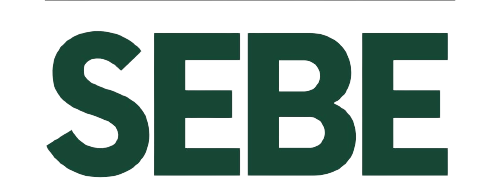Download Instructions for Poster Presentations
AUTHOR SUBMISSION INSTRUCTIONS FOR THE SUSTAINABILITY IN ENGINEERING & THE BUILT ENVIRONMENT (SEBE) CONFERENCE 2022
Deadline for Draft Poster: October 11th, 2022.
Deadline for Final Poster: November 6th, 2022.
Before preparing your poster, please read the following:
General:
- Limit the quantity of text on the poster. Replace text with figures and tables, if possible.
- Structure of poster should include the minimum of the following sections:
- Introduction
- Acknowledgement
- Objectives
- Methodology
- Key discussion areas
- Recommendations
- Conclusion
- References
Size:
- The poster size should be 33.4 inches by 46.8 inches (A0 paper format).
Text:
- Times New Romans font type.
- Heading 1: Bold and 36 font size.
- Heading 2: 26 font size, underlined and italicized.
- Body text: 26 font size and justified.
- Paragraph spacing single between text and paragraphs.
Figures:
- Insert caption below texts.
- Font size 24 and italicized.
Tables:
- Insert caption above texts.
- Font size 24 and italicized.
Equation:
- Insert caption to the right of equation.
- Font size 24, italicized and equation number in parenthesis.
References
- Numeric referencing style
AUTHOR RESPONSIBILITIES
Language
All posters must be submitted in English. Authors may seek professional help for the purposes of editing.
Misconduct
Academic Misconduct will be inline with the University of Guyana’s policy as shown below:
Academic Misconduct includes, but is not limited to plagiarism, collusion, complicity, cheating and fraud. Academic misconduct is taken to be deliberate when a person has had the opportunity to gain an understanding of the practice of academic integrity before the misconduct has occurred, but may be inadvertent when the person does not have an understanding of the practice of academic
integrity.
- Plagiarism - Is Using The Words, Ideas, Data, Illustrative Material, Statements Or Work Of Others Without Due Acknowledgement, Deliberately Or Inadvertently, And Proclaiming It Or Allowing It To Be Considered As One's Own For Academic Or Other Purposes.
- Collusion - Is A Type Of Plagiarism That Includes, But Is Not Limited To Presenting The Product Of Unauthorised Collaboration To An Examiner As Independent Work. Collusion Also Occurs When A Person Knowingly Allows His Or Her Work To Be Copied And Passed Off As The Work Of Another Person.
- Complicity - Is Assisting Or Attempting To Assist Another Student In An Act Of Academic Dishonesty. Cheating Is The Use Of Improper Means Or Subterfuge To Gain Credit Or Advantage. Forms Of Cheating Include The Use, Attempted Use, Or Possession Of Material In An Unauthorised Form In Any Examination Or Other Academic Exercise Submitted For Evaluation; Misrepresentation Of Academic Or Extracurricular Credentials; And Deceitful Performance On Examinations. It Is Also Cheating To Submit The Same Work For Credit In More Than One Course, Except As Authorised In Advance By The Lecturers.
- Cheating - Also Includes, Copying From Another Student; Sitting An Examination For Another Student; And Presenting A False Reference List Or Bibliography.
- Fraud - Is A Form Of Cheating That Includes, But Is Not Limited To The Fabrication Of Data, And Falsifying Collected Data From Systematic Enquiry And Research Investigations.
- University of Guyana, 2018
Referencing
Referencing should follow a numerical style such as the Institute of Electrical and Electronics Engineers (IEEE) style.
Example
In-text
The following link gives access to IEEE’s guiding document regarding referencing [1]:
References
Institute of Electrical and Electronics Engineers. (2018). IEEE Reference Guide.
Piscataway, NJ.
